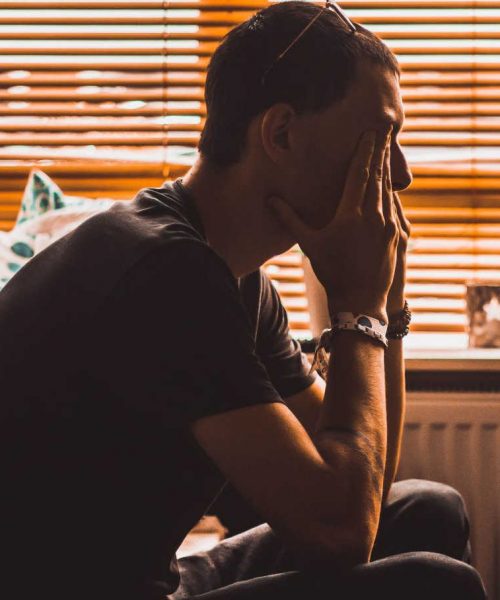Psychiatrist for Teens and Adolescent Psychiatry Programs in Dallas, Texas
This comprehensive resource on psychiatric care programs tailored specifically for teens and adolescents in Dallas, Texas, includes information on the range of specialized services, how to find a qualified psychiatrist, and therapeutic programs that address teens’ mental health. Whether you’re seeking youth counseling, medication management, or intensive psychotherapy for your child, you’ve come to the right place.
What is an Adolescent Psychiatric Care Program?
An adolescent psychiatric care program is a specialized healthcare service designed to address adolescent mental health issues. These programs typically offer a comprehensive range of psychiatric services tailored to adolescent developmental, emotional, and social challenges. Such programs provide a multidisciplinary approach involving psychiatrists, psychologists, social workers, nurses, and other professionals working collaboratively to deliver individualized treatment plans.
Adolescent psychiatric care programs aim to alleviate symptoms of mental illness and promote overall teenage well-being and functional improvement. Treatment modalities may include Cognitive-Behavioral Therapy (CBT), medication management, family therapy, group therapy, and experiential therapies. Additionally, these programs often incorporate educational and vocational support to help adolescents and young adults maintain academic progress and develop skills necessary for independent living.
By addressing mental health concerns early and comprehensively, these programs strive to empower adolescents to navigate life’s challenges and achieve their full potential. Contact us to learn more about BasePoint Academy’s teen psychiatry services in Texas.
Teen Psychiatric Care Admissions and Intake
Our complimentary assessment with a licensed clinician will provide you with a recommendation for the appropriate level of care for your teen struggling with mental health. We can also check your insurance coverage levels.
Call us today to schedule a complimentary same-day assessment at (972) 357-1749 or complete our inquiry form.
Teen Psychiatric Care Admissions
Contact BasePoint Academy Today
Contact us today to schedule a free confidential assessment for your teen with a licensed clinician.
You can also get in touch to talk with our mental health experts about treatment needs, care options and your insurance coverage levels.
Call: (972) 357-1749Check Your InsuranceWhat is The Difference Between a Psychiatrist and a Therapist?
The primary difference between a psychiatrist and a therapist is their educational background, scope of practice, and approach to treatment. Psychiatrists are medical doctors who’ve completed medical school and specialized training in psychiatry. As such, they are qualified to diagnose mental health disorders, prescribe medication, and provide a range of medical interventions.
Psychiatrists often focus on the biological aspects of mental illness, including how brain chemistry, genetics, and neurobiology contribute to psychiatric disorders. They may use medication management in conjunction with therapy to treat mental health disorders comprehensively.
On the other hand, therapists, also known as counselors or psychotherapists, come from various educational backgrounds, such as clinical psychology, social work, counseling, or marriage and family therapy. They typically hold master’s or doctoral degrees in their respective fields and specialize in providing psychotherapy or counseling services.
Therapists employ various therapeutic techniques and approaches to help individuals, couples, families, or groups address emotional, behavioral, and interpersonal challenges. Unlike psychiatrists, therapists do not prescribe medication but instead focus on helping clients explore thoughts, feelings, and behaviors to promote self-awareness, personal growth, and positive change. While both psychiatrists and therapists play essential roles in mental healthcare, they often collaborate to provide comprehensive treatment plans tailored to individual needs.
Teen Psychology vs. Psychiatry: What’s The Difference?
Medical studies and statistics reveal that 14% of all teenagers (ages 10 to 19) experience some form of mental health disorder. The most common are depression and anxiety but include behavioral disorders.1
Perhaps more troubling is the data that suicide is one of the top leading causes of death among teens and young adults (ages 15-29). In recent years, another study reported that most teens believed that anxiety, depression (70%), and substance use (51%) were major problems among their peers.2
We’re stepping into the gap between suffering and healing to meet the needs of teens and families. Through a multidisciplinary approach blending counseling, medication management, and psychiatry services, we hope to see more teens healing and happy.
Working closely with parents, school counselors, and pediatricians, we’ve developed our signature program for developing resiliency and building healthy habits unique to each patient. If your teen is struggling with mental health or behavioral disorders, we’re here to help.
Statistics on Psychiatric Care Programs
In Texas, over 1.2 million adolescents, comprising 20% of the state’s youth, grapple with mental, emotional, behavioral, or developmental issues. The Lone Star State, like the nation, faces a shortage of mental health professionals, particularly adolescent psychiatrists. Consequently, youth psychiatric emergencies and hospitalizations have increased in recent years.
Alarmingly, emergency department visits for suspected suicide attempts among girls aged 12-17 years spiked by 50.6% in 2020 compared to the previous year. Despite the prevalence of mental health issues, treatment rates for children and adolescents remain low, particularly for depression and anxiety, even though outcomes from inpatient psychiatric care for adolescents indicate a reduction in depression, anxiety, and suicidal ideation. In response to this dire situation, healthcare experts declared a national emergency in child mental health in October 2021.

BasePoint Academy Accepts health Insurance
We accept most major health insurance providers in Texas and can check your treatment coverage levels on your behalf.
Youth Psychiatric Care Programs in Dallas, Texas
BasePoint Academy runs several treatment facilities across the Dallas, Texas, region, focusing on adolescent psychology. Recognizing the importance of early intervention in teen mental health, we provide same-day, complimentary assessments to determine the best level of care for your teen. This ensures prompt attention and practical support for our patients, emphasizing our commitment to teenage well-being.

Youth Psychiatric Care Treatment in Arlington, Texas
- BasePoint Academy – Arlington, Texas: 3900 Arlington Highlands Blvd, Suite 237, Arlington, TX 76018, United States
Youth Psychiatric Care Treatment in Forney, Texas
- BasePoint Academy – Forney, Texas: 713 W Broad St, Suite 200, Forney, TX 75126, United States
Youth Psychiatric Care Treatment in McKinney, Texas
- BasePoint Academy – McKinney, Texas: 4733 Medical Center Drive, McKinney, TX 75069, United States
Best Ways to Find a Psychiatrist for Teens Near Me
Finding affordable teen psychiatry mental health services near Dallas, Texas, can be challenging, but it is achievable. With persistence and resourcefulness, options are available. Here are some of the best ways to find psychiatrists and psychiatric care programs for teens:
- Ask for Recommendations: Consider recommendations from trusted sources such as your teen’s pediatrician, school counselor, or primary care physician. They may be able to provide referrals to psychiatrists specializing in adolescent behavior and psychology.
- Check with Your Insurance Provider: Check your insurance to determine which psychiatrists in your network are covered by your insurance plan. This can help minimize out-of-pocket costs and narrow down your options.
- Research Online Directories: Use online directories like Psychology Today, Zocdoc, and Healthgrades to find psychiatrists in your immediate area. These platforms allow you to filter by location, specialty, and insurance.
- Use Search Engines: Google, Bing, Yahoo, and related are good resources for finding relevant options. Narrow your search by entering general and specific keywords, such as “best teen psychiatrist near me” or “psychiatry for depression in teen boys.”
- Read Reviews and Testimonials: Take the time to read reviews and testimonials from other patients and families regarding their experiences with potential psychiatrists. These insights can provide valuable information about the psychiatrist’s approach and effectiveness in working with teens.
- Consider Specialties and Expertise: Look for psychiatrists with experience in treating your child’s specific mental health concerns. Whether it’s anxiety, depression, schizophrenia, ADHD, eating disorders, or substance abuse, finding a psychiatrist with relevant expertise is crucial.
- Consider Accessibility and Convenience: Consider factors such as office location, hours, and appointment availability. Choose a provider whose schedule aligns with your teen’s needs to ensure consistent attendance and ongoing treatment.
- Trust Your Instincts: Lastly, trust your instincts when making a decision. Pay attention to how you and your teen feel during the initial consultation and whether you feel comfortable and confident in the psychiatrist’s abilities to provide effective care.
What is the BasePoint Difference?

7am to 7pm CST
7 Days a Week

Full Time Physican
On Site

We Transport
To and From

Therapy Involving
the Whole Family

Family
Owned


What Do Psychiatrists Do?
Psychiatrists are medical doctors specializing in the diagnosis, treatment, and prevention of behavioral, emotional, and psychiatric disorders. They’re trained to evaluate both the biological and psychological factors contributing to a person’s mental health condition. Psychiatrists utilize their expertise to conduct thorough psychiatric evaluations, including interviews, observations, and sometimes psychological testing, to formulate accurate diagnoses.
After a diagnosis is confirmed, psychiatrists work with patients to develop personalized treatment plans. This may involve prescribing medications, such as antidepressants, antipsychotics, or mood stabilizers, to alleviate symptoms. Additionally, psychiatrists often provide psychotherapy or counseling, employing various therapeutic approaches. Beyond direct patient care, psychiatrists may collaborate with other healthcare professionals, like psychologists, social workers, and primary care physicians, to ensure comprehensive, holistic mental health treatment.
Types of Psychiatry Programs for Teens
Teenage challenges are unique, especially when it comes to mental health. This necessitates the development of specialized programs that address various issues, including bipolar disorder, anxiety, substance abuse, eating disorders, and behavioral health problems. By offering targeted interventions, psychiatry programs for teens aim to empower and instill teenage resilience. Below, we’ll explore common types of such programs. Contact us for a free assessment today!
Partial Hospitalization Programs (PHP)
Partial Hospitalization Programs (PHP) offer a structured yet less intensive alternative to inpatient care for adolescents struggling with mental health challenges. These programs provide comprehensive treatment during the day, allowing teens to return home in the evenings. PHP typically involves adolescent therapy sessions, medication management, educational support, and skill-building activities tailored to meet the individual needs of each participant.
By offering intensive treatment while allowing teens to maintain connections with their families and communities, PHP aims to support teens’ mental health by enabling them to achieve stability and progress in their recovery journey. Contact us to learn more about our PHP at BasePoint Academy.
Intensive Outpatient Programs (IOP)
Intensive Outpatient Programs (IOP) are a flexible and effective option for adolescents in need of structured psychiatric care while maintaining their daily routines. These programs offer comprehensive treatment during scheduled sessions, typically occurring several times weekly. They’ll participate in various therapeutic activities, including individual and group therapy, skill-building sessions, and psychoeducation, tailored to address their specific mental health needs.
IOPs provide a supportive environment where teens receive intensive treatment and support while still being able to attend school, work, or fulfill other responsibilities outside of treatment hours. This approach allows adolescents to receive the necessary care to manage their mental health challenges while continuing to engage in their daily lives and build essential skills for long-term recovery and well-being—call (972) 357-1749 to speak with one of BasePoint Academy’s compassionate representatives today.
Inpatient Residential Psychiatric Care for Teens
Inpatient residential psychiatric care for teens provides intensive, round-the-clock treatment for adolescents struggling with severe mental health issues. These programs offer a structured, supportive environment where teens receive comprehensive psychiatric evaluation, medication management, individual adolescent therapy, group therapy, and educational support.
Focusing on stabilization and crisis intervention, inpatient residential care ensures safety while helping teenagers develop coping skills and strategies to effectively manage their conditions. Additionally, these programs often involve family therapy and discharge planning to facilitate a smooth transition to community-based care. Call (972) 357-1749. Our team is committed to guiding families through every step of the journey, including the transition to and from residential care. Drawing on our expertise and teen mental health resources, we’ll help you find a suitable residential program.

Contact BasePoint Academy Today
Contact us today to schedule a free confidential assessment for your teen with a licensed clinician.
You can also get in touch to talk with our mental health experts about treatment needs, care options and your insurance coverage levels.
Call: (972) 357-1749Check Your Insurance
Signs Your Teenager Might Need a Psychiatric Care Program
Recognizing when your teenager might need psychiatric care can be challenging but crucial for their well-being. Adolescence is a time of significant physical, emotional, and social changes. Teenage stress, mood swings, and conflicts are normal. However, certain signs may indicate underlying mental health issues requiring professional intervention. Below, we’ll explore common signs suggesting your teen may benefit from psychiatric care.
Mood and Behavior Changes
Noticeable mood and behavior changes in teenagers can indicate the need for psychiatric care. While mood swings and behavioral shifts are normal, persistent extremes like sudden outbursts or withdrawal may signal underlying mental health issues. Seeking early psychiatric care can provide vital support for teenagers’ well-being and help manage their challenges effectively.
Social Withdrawal and Isolation
Social withdrawal and isolation are significant signs that a teenager may require psychiatric care. While it’s normal for teens to occasionally seek alone time, persistent withdrawal from social activities, friends, and family can indicate underlying mental health issues such as depression or social anxiety disorder.
Teens experiencing social withdrawal may prefer spending excessive time alone in their room, avoiding social interactions, and withdrawing from previously enjoyed activities. Be attentive to these signs and consider seeking professional help if observing prolonged, concerning patterns of social withdrawal in your teenager. Early intervention through psychiatric care can help address the underlying issues contributing to social isolation and provide support to help teenagers regain a sense of connection and engagement in their social lives.
Sleep and Appetite Changes
Sleep and appetite changes in teenagers can signal the need for psychiatric care. Persistent disruptions, like insomnia or significant changes in eating habits, may indicate underlying mental health issues such as depression or anxiety. Early psychiatric intervention can address these concerns and provide support for improved sleep and eating patterns.
Substance Use and Risky Behaviors
Substance use and risky behaviors in teens may signal the need for psychiatric care. These behaviors, including drug experimentation and reckless actions, can stem from underlying mental health issues. Seeking prompt psychiatric intervention can address these concerns, provide appropriate support, and help teens develop healthier coping strategies. Early intervention is critical for preventing further harm and promoting positive outcomes.
Self-Harm and Suicidal Thoughts
Self-harm and suicidal thoughts in teenagers necessitate immediate psychiatric care. These behaviors signal underlying mental health issues. Seeking prompt, professional help is crucial, as early intervention can provide vital support to ensure your child’s safety and well-being. Early intervention is critical in preventing self-harm escalation and reducing the risk of suicide, underscoring the urgency of seeking psychiatric care.
Psychotic Symptoms and Disorganized Thinking
Psychotic symptoms and disorganized thinking in teenagers require urgent psychiatric care. These signs, including hallucinations and disorganized speech, may indicate serious conditions like schizophrenia. Professional intervention is essential to ensure the teen’s safety and provide appropriate treatment, including medication and therapy, to manage these symptoms effectively.
Trauma Reactions
Trauma reactions in teenagers stemming from experiences like abuse or violence may require psychiatric care. These reactions, including flashbacks and emotional numbness, significantly impact mental health and functioning. Early intervention through psychiatric care provides specialized support and treatment, such as trauma-focused therapy, to promote healing and teenage resilience.
Developmental Regression
Developmental regression in teenagers suggests a potential need for psychiatric care, as it may indicate underlying emotional distress or mental health issues. Regression refers to a reversion to earlier developmental stages or behaviors, such as bedwetting, tantrums, or loss of previously acquired skills. While occasional regression is normal during stress or transition, persistent, severe regression can indicate underlying issues.
Immediate, skilled evaluation and intervention are essential, as well as offering therapy, family support, and skill-building to effectively address the teenager’s needs and promote healthy development.
Does Insurance Cover Psychiatrists for Teens?
Yes, insurance often covers teen psychiatric services, but coverage varies depending on the insurance plan and additional factors. Many plans include mental health benefits that encompass psychiatric evaluation, diagnosis, and mental health treatment. However, coverage details, including copayments, deductibles, and limitations on the number of visits, can vary widely between insurance providers and individual plans.
Reviewing your insurance policy to understand the extent of coverage for psychiatric services for teens is essential. Contact us for clarification on coverage specifics, including any prior authorization requirements or restrictions that may apply. Understanding these requirements ensures seamless access to mental health services for teens. You may also check your insurance via our convenient and confidential online form.

Contact BasePoint Academy Today
Contact us today to schedule a free confidential assessment for your teen with a licensed clinician.
You can also get in touch to talk with our mental health experts about treatment needs, care options and your insurance coverage levels.
Call: (972) 357-1749Check Your InsuranceWhich Health Insurance Providers Cover Psychiatric Care for Teenagers?
Several major health insurance providers extend coverage for psychiatric care tailored to teenagers. UnitedHealthcare, Blue Cross Blue Shield, Aetna, Cigna, and Carelon Behavioral Health are among these. These companies typically cover services, including psychiatric evaluations, psychotherapy, medication management, and various treatment programs for psychiatric disorders.
While these insurance providers and others are recognized for their coverage, reviewing your specific policy is pertinent to grasp the full extent of coverage and any potential limitations. Coverage particulars can differ based on the plan type, location, individual policy terms, and more, so contacting the insurance provider or calling (972) 357-1749 is recommended to clarify available mental health benefits and the process for accessing psychiatry for teenagers.

How Much Does Psychiatry for Teens Cost in Dallas, Texas?
Psychiatry costs for teens vary widely depending on factors like the type of services needed and insurance coverage. Without insurance, therapy sessions can range from $100 to $200 per session. Psychiatrists typically command higher fees than counselors, social workers, and psychologists due to their medical training and ability to prescribe medication and assess physical health alongside mental well-being.
For those with health insurance, out-of-pocket costs can be significantly lower, typically consisting of copayments or coinsurance for each visit. However, insurance plans also vary in terms of coverage for psychiatric services, so it’s essential to review your policy details to understand financial responsibilities—call (972) 357-1749 for guidance.
When Does Your Teen Need To See A Teenage Psychiatrist?
It can be difficult to determine what is socially acceptable but moderately disruptive teen behavior and what may indicate something more serious. As a parent, your role is to train and protect your teenager, yet some concerns may be outside the scope of your experience.
You are not alone. Many families face similar circumstances and seek help from a reliable source like BasePoint Academy. It is our goal to equip both teens and parents to safely navigate behavioral and mental health disorders and build a healthier life. Here are a number of signs to look for that may indicate your teen could benefit from seeing a team psychiatrist:
- Preoccupation with suicide, death, or self-harm
- Difficulty managing emotions (anger, fear, etc.)
- Recent traumatic experience
- Unexplained moodiness
- Appearance of despair
- Substance or alcohol use

What Does Treatment Look Like?

Admissions
With our qualified and experienced admissions personnel is the first step to beginning treatment. We will learn more about your family and your teen to better understand their treatment needs and verify insurance coverage.
Assessments
After the admissions process, the patient will undergo a detailed and comprehensive assessment process to design the best course for treatment. This may include ab testing, neuroimaging studies, psych evaluations, and medical history assessments.


Outpatient Treatment Programs
After a detailed mental health assessment has been completed, patients are admitted into Outpatient Treatment programs based on their individualized treatment plan. Interventions include crisis stabilization, medication management, teen psychotherapy, and lifestyle changes.
Therapy Interventions
BasePoint Academy employs only industry-leading, evidence-based, and teen-specific treatments for mental health and behavioral disorders. This includes Cognitive Behavioral Therapy (CBT), Motivational Interviewing (MI), Mindfulness and Systems Therapy, family therapy, group therapy, and experiential therapy.

Frequently Asked Questions About Teenage Psychiatry
Our teen therapists, counselors, and clinicians are driven by a passion for positive outcomes and patient success. At BasePoint Academy, our teen psychiatrists are committed to being a resource for families and developing a collaborative partnership to pursue healing. During your appointments, they will employ active listening and compassion and provide guidance and treatment for addressing mental health challenges.
Teens will learn more about how and why certain processes and behaviors are present and develop practical coping skills to manage their emotions and behaviors. A psychiatrist may also prescribe medications that assist with symptom management and promote an improved quality of life.
If your teen is suffering from depression, they may exhibit the following signs or symptoms: [4]
- Sadness and irritability
- Excessive guilt
- Withdrawal from friends or hobbies
- Sleep changes
- Changes in appetite or eating habits
- Difficulty concentrating
- Extreme sensitivity
- Agitation
- Substance use
- Poor performance
- Lack of personal hygiene
- Outbursts
- Self-harm
- Suicidal ideations or attempts
Statistics Related to Psychiatrists and Psychiatric Care Programs
- Out of over 7 million Texans aged 17 and below, over 1.2 million acknowledge experiencing a mental, emotional, behavioral, or developmental (MEDB) issue. This accounts for 20% of all youth in Texas.
- Texas struggles with a shortage of mental health professionals and adolescent psychiatrists, as does the nation.
- Youth psychiatric emergencies and psychiatric inpatient hospitalizations have seen a rise in recent years.
- Findings from a study on outcomes of inpatient psychiatric care for adolescents revealed a notable reduction in depression, anxiety, and suicidal ideation from admission to discharge.
- Emergency department visits for suspected suicide attempts among girls aged 12-17 years were 50.6% higher in 2020 compared to the same period in 2019.
- Several studies indicate that the treatment rates for mental disorders among children and adolescents were typically low, particularly concerning depression and anxiety.
- Between 2007 and 2021, suicide rates among young individuals aged 10 to 24 surged by 62%. Over the period from 2014 to 2021, homicide rates increased by 60%. The severity of the situation prompted healthcare experts to declare a national emergency in child mental health in October 2021.
Sources
- World Health Organization. (n.d.). Mental health of adolescents. World Health Organization. Retrieved from https://www.who.int/news-room/fact-sheets/detail/adolescent-mental-health on July 11, 2023
- Horowitz, J. M. (2019, February 20). Most U.S. teens see anxiety and depression as a major problem among their peers. Pew Research Center’s Social & Demographic Trends Project. Retrieved from https://www.pewresearch.org/social-trends/2019/02/20/most-u-s-teens-see-anxiety-and-depression-as-a-major-problem-among-their-peers/ on July 11, 2023








